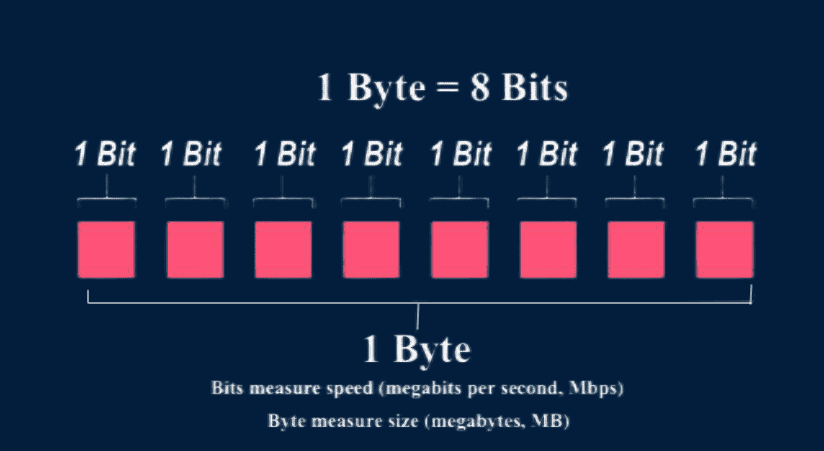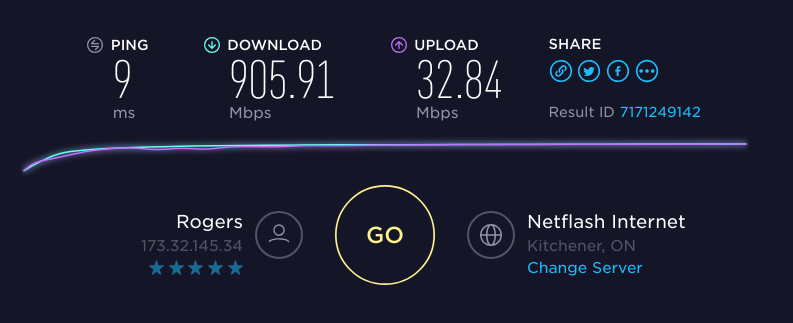Comparing Internet Service Providers: Who Offers the Best Megabits Per Second?
Comparing Internet Service Providers: Who Offers the Best Megabits Per Second?
Blog Article
Exactly How Megabits Per Second Effect Your Online Tasks
The principle of megabits per second (Mbps) plays a crucial function in forming our on the internet experiences. Higher Mbps can boost performance and lower interruptions, while inadequate rates may promote disappointment and inadequacy.
Recognizing Megabits Per Second
When thinking about internet rate, it's important to recognize the principle of megabits per second (Mbps), which functions as a common dimension for information transfer prices. This statistics evaluates just how much information can be transferred over a net connection in one second, providing a clear understanding of efficiency capacities - Megabits Per Second. For context, one megabit amounts to one million little bits, and Mbps is typically made use of to express transmission capacity for various online activities
A higher Mbps suggests a much faster internet connection, allowing customers to execute tasks such as downloading and install documents, browsing web sites, and participating in online gaming much more successfully. Normal browsing calls for around 1-5 Mbps, while streaming high-definition video might demand 5-25 Mbps. Comprehending these requirements is important for determining the ideal web speed needed for certain activities.
Furthermore, the variety of gadgets attached to a network can influence overall performance. Multiple individuals streaming, pc gaming, or downloading and install simultaneously can strain available data transfer, leading to slower speeds - Megabits Per Second. Assessing personal online practices and demands is crucial in choosing a web plan that straightens with one's demands, ensuring a smooth electronic experience
Streaming and Buffering Issues
Streaming high-def material has become a staple of contemporary on the internet amusement, yet it is usually come with by irritating buffering problems. These disruptions can considerably detract from the seeing experience, resulting in discontentment and potential loss of audience involvement. Buffering happens when the data transferred from the streaming service is not obtained quickly enough to maintain a smooth playback, typically due to inadequate internet rate gauged in megabits per second (Mbps)

Moreover, real-time streaming can be influenced by network blockage, which happens when multiple devices share the very same transmission capacity. Enhancing connection speed and ensuring ample Mbps is necessary for a seamless streaming experience. As streaming services proceed to progress, comprehending the impact of Mbps on buffering concerns stays important for consumers looking for undisturbed amusement.
Online Gaming Performance
The impact of internet rate on online activities prolongs past streaming, dramatically influencing on-line pc gaming efficiency. In competitive video gaming, low latency and high data transfer are essential for a smooth experience. A quick link reduces lag, permitting players to respond swiftly to in-game events, which can be the distinction between success and loss.
Transmission capacity, gauged in megabits per second (Mbps), plays a vital duty in supporting several devices and pc gaming platforms concurrently. Insufficient transmission capacity can lead to went down connections or reduced game high quality, adversely affecting gameplay. On-line multiplayer games need considerable information transfer, specifically during peak gaming hours when countless gamers are online.
Fast-paced first-person shooters require greater speeds to maintain responsiveness, while turn-based technique video games might operate fairly well on lower speeds. As online video gaming continues to evolve, with boosting graphical integrity and more complicated multiplayer environments, the demand for higher Mbps will just intensify.
Video Clip Conferencing High Quality
In today's digital landscape, video clip conferencing top quality is greatly affected by net speed, particularly in regards to bandwidth and latency. High-grade video calls need enough bandwidth to transmit audio and video data perfectly. Normally, a minimum of 1.5 Mbps upload and download speeds is this post recommended for conventional interpretation video clip, while high-def video conferencing usually demands a minimum of 3 Mbps.
Latency, or the delay between sending and obtaining data, also plays a critical duty in the individual experience. Greater latency can lead to resemble, lag, and disjointed communications, which can impede partnership and involvement throughout conferences.
Moreover, multiple participants in a video clip conference can stress offered data transfer, demanding even greater rates. Network blockage, typically brought on by synchronised activities like streaming or downloading, can further weaken video clip high quality. Thus, for organizations relying upon video clip conferencing for remote collaboration, recognizing the connection in between megabits per overall and second interaction quality is essential for preserving performance and improving digital interactions.
Selecting the Right Net Plan
Selecting an ideal net plan is important for guaranteeing ideal efficiency in various online activities, particularly in setups that require high bandwidth, such as video conferencing and online gaming. Megabits see this page Per Second. When taking into consideration a web strategy, it is vital to evaluate both the speed and data allocation to match your particular use demands
For households with multiple users taking part in simultaneous tasks, a strategy supplying higher megabits per second (Mbps) is suggested. Commonly, a minimum of 25 Mbps appropriates for common streaming and browsing, while plans going beyond 100 Mbps are preferable for even more extensive tasks. Furthermore, take into consideration the nature of your online activities; video clip conferencing requires a minimum of 1.5 Mbps publish rate, while on the internet video gaming might need a reduced latency however consistent link.
Limitless information plans can avoid throttling and interruptions, particularly if heavy use is expected. By attentively choosing a net plan tailored to your needs, you can improve your on the internet experience, making certain smooth, uninterrupted access to your preferred activities.
Verdict
In verdict, the significance of megabits per second (Mbps) fit on the internet activities can not be overemphasized. Greater Mbps facilitates smooth streaming, decreases buffering, enhances video gaming experiences, and ensures top quality video conferencing. On the other hand, insufficient transmission capacity can lead to frustrating disturbances and decreased efficiency across various jobs. Consequently, a complete understanding of specific or house Mbps demands is vital for choosing an ideal internet strategy that appropriately sustains varied online activities and user needs.

Typically, a minimum of 25 Recommended Reading Mbps is suitable for conventional streaming and browsing, while plans exceeding 100 Mbps are preferable for more intensive tasks. Furthermore, consider the nature of your online tasks; video clip conferencing calls for at the very least 1.5 Mbps submit speed, while online gaming may need a lower latency however constant link.
Report this page